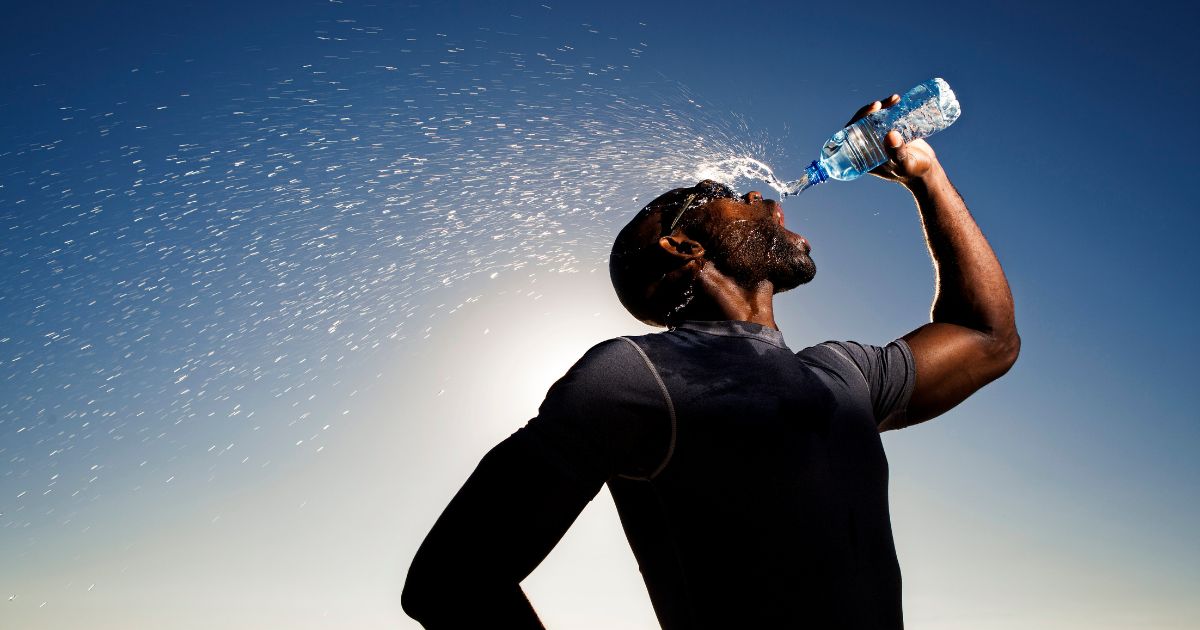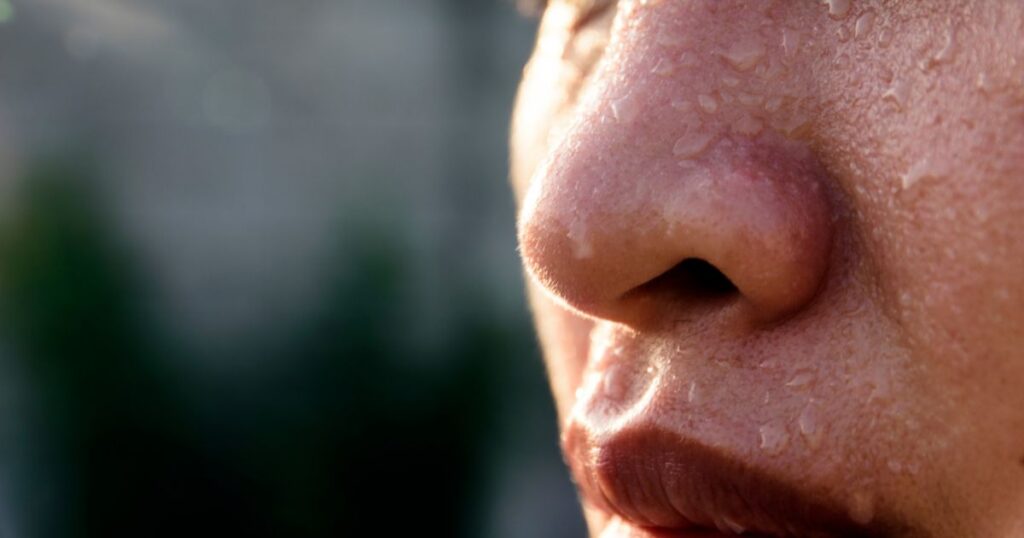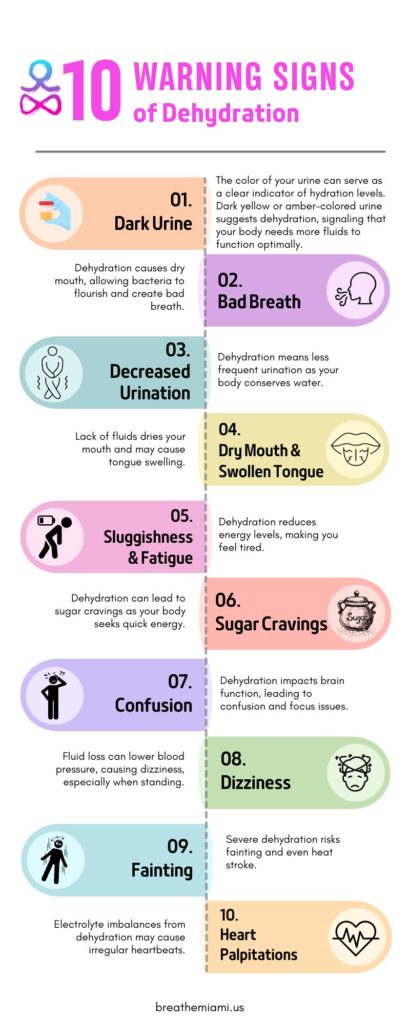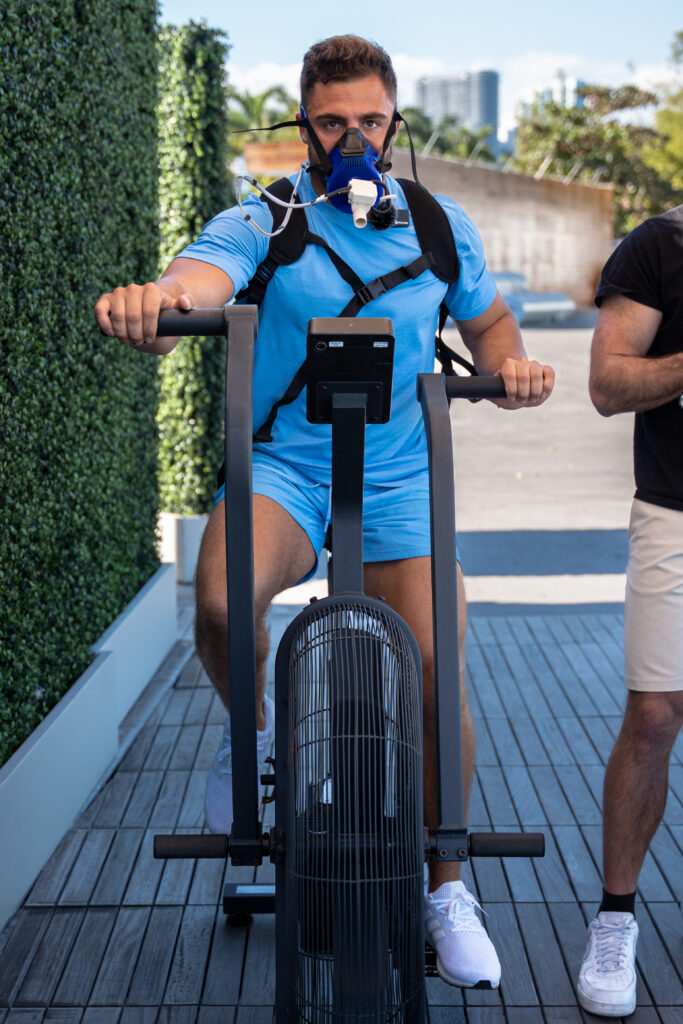10 Warning Signs of Dehydration

Tanner Kain, a highly accomplished fitness professional with a Master's…
Reed Berglund is a passionate advocate for wellness and an…
Did you know that it’s often cited that 75 percent of Americans are chronically dehydrated? While this statistic lacks solid medical research, it’s still a cause for concern. We’re only in March here in Miami, and the weather has been absolutely gorgeous. However, we all know that the heat and humidity will soon intensify. This reality hit me hard during a recent trip to Mexico for the America’s Cup padel tournament in Puerto Escondido.
Upon our arrival, the Red Padel team gave us each a bag of electrolytes and a new water bottle (thank you). They reiterated the importance of staying hydrated throughout the day, especially considering the intense heat index. This got me wondering: what goes down when our bodies start feeling the heat?
Sure, it might seem like common sense, but I wanted to grasp the intricacies of how dehydration affects us, particularly in hot and humid climates. Let’s dive in and find out.
Understanding Dehydration
Dehydration is more than just feeling a bit thirsty; it’s a condition where the body loses more fluids than it takes in. According to John Hopkins, our bodies regulate internal heat through sweating and radiating heat through the skin.
Under normal circumstances, this cooling system works effectively. However, in extreme conditions like high heat, humidity, or intense physical activity in the sun, this mechanism may falter, leading to a dangerous buildup of heat.

When dehydration sets in and the body is unable to sweat adequately to cool down, internal temperatures can skyrocket, leading to heat stroke. This condition poses a severe threat to health and requires immediate attention.
The 10 Warning Signs of Dehydration

- Dark Urine: The color of your urine can serve as a clear indicator of hydration levels. Dark yellow or amber-colored urine suggests dehydration, signaling that your body needs more fluids to function optimally.
- Bad Breath: Dehydration can impact oral health, leading to dry mouth and contributing to bad breath. Insufficient saliva production allows bacteria to thrive in the mouth, resulting in unpleasant odors.
- Decreased Urination: Reduced urine output is a significant sign of dehydration. When the body lacks adequate fluids, it conserves water by producing less urine, leading to fewer trips to the bathroom.
- Dry Mouth and Swollen Tongue: Dehydration affects oral tissues, causing dryness in the mouth and potentially leading to a swollen tongue. These symptoms can be uncomfortable and may indicate a need for increased fluid intake.
- Sluggishness and Fatigue: Dehydration can sap your energy levels, leaving you feeling sluggish and fatigued. Without enough fluids, the body struggles to maintain proper function, leading to decreased physical and mental performance.
- Sugar Cravings: Interestingly, dehydration can trigger cravings for sugary foods and beverages. This may be the body’s way of seeking quick energy, but consuming excessive sugar can further dehydrate you, exacerbating the problem.
- Confusion: Dehydration can impair cognitive function, leading to confusion and difficulty concentrating. Inadequate hydration affects brain function, impacting memory, decision-making, and overall mental clarity.
- Dizziness: Lightheadedness and dizziness are common symptoms of dehydration. When the body lacks sufficient fluids, blood pressure may drop, leading to feelings of dizziness or faintness, especially when standing up quickly.
- Fainting: Severe dehydration can lead to fainting, a serious symptom with potentially dangerous consequences. When the body overheats and cannot adequately cool itself through sweating, heat stroke may occur, resulting in loss of consciousness.
- Heart Palpitations: Dehydration can affect cardiovascular function, leading to irregular heartbeats or palpitations. Electrolyte imbalances resulting from dehydration can disrupt the heart’s normal rhythm, causing palpitations or a sensation of fluttering in the chest.
Knowing these ten signs of dehydration is super important for keeping yourself feeling good and healthy. Just by paying attention and making sure you drink enough water, you can steer clear of dehydration issues and keep your body running smoothly. So, stay on the lookout and remember to keep hydrated!
Importance of Hydration for Wellness
Alright, now that we’ve given ourselves a bit of a scare, let’s talk about the flip side: the benefits of staying hydrated. Hydration plays a key role in keeping your body and mind in top-notch shape.
First off, staying hydrated boosts brain performance, helping you stay sharp and focused throughout the day. It also keeps your digestion humming along smoothly, preventing discomfort like bloating and constipation. Think you need more coffee to make it through the day? Hydration helps keep your energy levels up, so you can tackle whatever comes your way with gusto.
If you’re looking to manage your weight, staying hydrated can be a game-changer. It helps you feel full and satisfied, making it easier to resist those tempting snacks. Plus, it’s great for your joints, keeping them well-lubricated and reducing aches and pains.
And let’s not forget about temperature regulation. Hydration helps your body stay cool when things heat up, which is crucial for avoiding heat-related illnesses. It’s also key for kidney and heart health, helping to flush out toxins and keep your ticker ticking smoothly.
But when it comes to hydration there is often confusion with the role of water versus electrolytes. Many of us might think that pounding plain old H2O is all it takes to stay hydrated.
The Role of Water vs. Electrolytes
While water is indeed essential, electrolytes also play a crucial role in maintaining proper hydration levels. Electrolytes are minerals like sodium, potassium, calcium, and magnesium that help regulate fluid balance in the body. They’re involved in various bodily functions, including nerve and muscle function, pH balance, and hydration. When we sweat or lose fluids through other means, we also lose electrolytes. That’s why it’s important to replenish both water and electrolytes, especially after intense physical activity or in hot, humid conditions. In previous articles, I have covered the rise of biomarker testing which is helping us access more of this data to determine what our bodies need.

When to Pick Electrolyte Drinks Over Water
Most of the time, even during hard workouts or hot weather, people can stay hydrated by drinking plenty of water. However, there are times when replacing electrolytes is necessary. The amount of minerals one needs to consume to maintain healthy levels is based on several different factors including age, physical activity level, health status, or pregnancy/breastfeeding.
All electrolyte drinks are different, so it is important to read labels before purchase. Some have a higher or lower amount of electrolytes in them and some are even considered supplements (which are not regulated by the FDA) so they do not contain nutrition labels.
Electrolyte drinks come in handy during intense workouts lasting 75 minutes or more, or in hot workout environments. They’re also beneficial for individuals facing illness with prolonged sweating, vomiting, or diarrhea. When dealing with such conditions, replenishing lost fluids and electrolytes becomes crucial.
However, if you’re not sick and your workout lasts an hour or less, water is perfectly adequate for recovery. It’s essential to match your hydration strategy with your specific needs and circumstances.
Conclusion
It’s crucial to heed your body’s signals and make hydration a priority in your daily routine. Whether it’s reaching for a refreshing glass of water, a hydrating electrolyte drink, or incorporating fruits and vegetables with high water content into your diet, staying hydrated is key to overall well-being.
What’s your go-to hydration strategy? Do you have any favorite tips or tricks for staying hydrated throughout the day? Share your thoughts and experiences with us, and let’s continue to support each other on our wellness journeys. Your input could inspire others to adopt healthier hydration habits and lead to a happier, healthier community overall.
Tanner Kain, a highly accomplished fitness professional with a Master's in Public Health and a Bachelor's in Kinesiology, brings a wealth of knowledge and experience to Breathe Miami. As a former college football player and leader at Anatomy, one Miami's top gyms, Tanner understands that true strength lies in resilience and the ability to persevere through challenges. With his expertise and passion for promoting wellness, Tanner is dedicated to helping individuals embrace a holistic approach to fitness and live their best, healthiest lives.
Reed Berglund is a passionate advocate for wellness and an embodiment of the active lifestyle. As a former college athlete who played basketball for the UNLV Running Rebels, he's lived a life deeply immersed in body movement and sports. Reed's enthusiasm for staying active extends far beyond the basketball court. He's an avid surfer, wakeboarder, skier, basketball and tennis enthusiast, and an emerging padel player. His love for holistic well-being also includes a dedication to cold plunges and contrast therapy, embracing these practices to optimize recovery and vitality. In his role as the founder of Breathe, Reed brings his extensive experience in wellness and his unwavering commitment to helping individuals discover their path to a healthier, more mindful life. His personal journey and multifaceted fitness background inspire his vision for Breathe as a platform that empowers urban dwellers to explore, experience, and embrace well-being in all its forms. Reed's current focus lies in the realm of flexibility, a key component in his fitness journey to extend the longevity of his active lifestyle. Through Breathe, he aims to share his passion, knowledge, and insights with a vibrant community of wellness enthusiasts, experts, and storytellers, collectively working toward a healthier and happier world.


